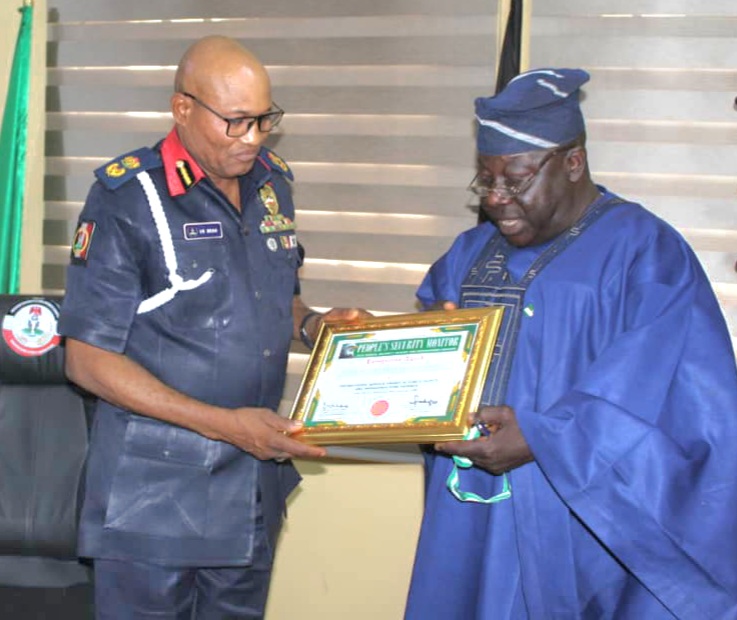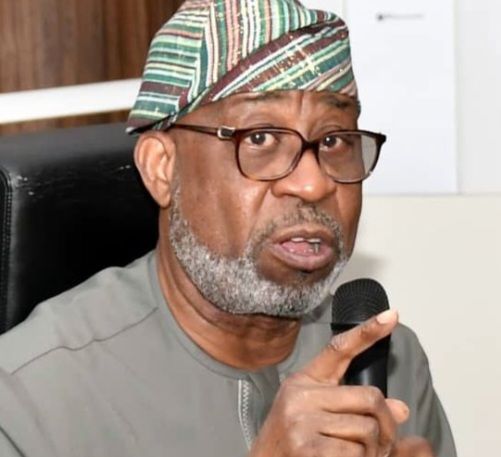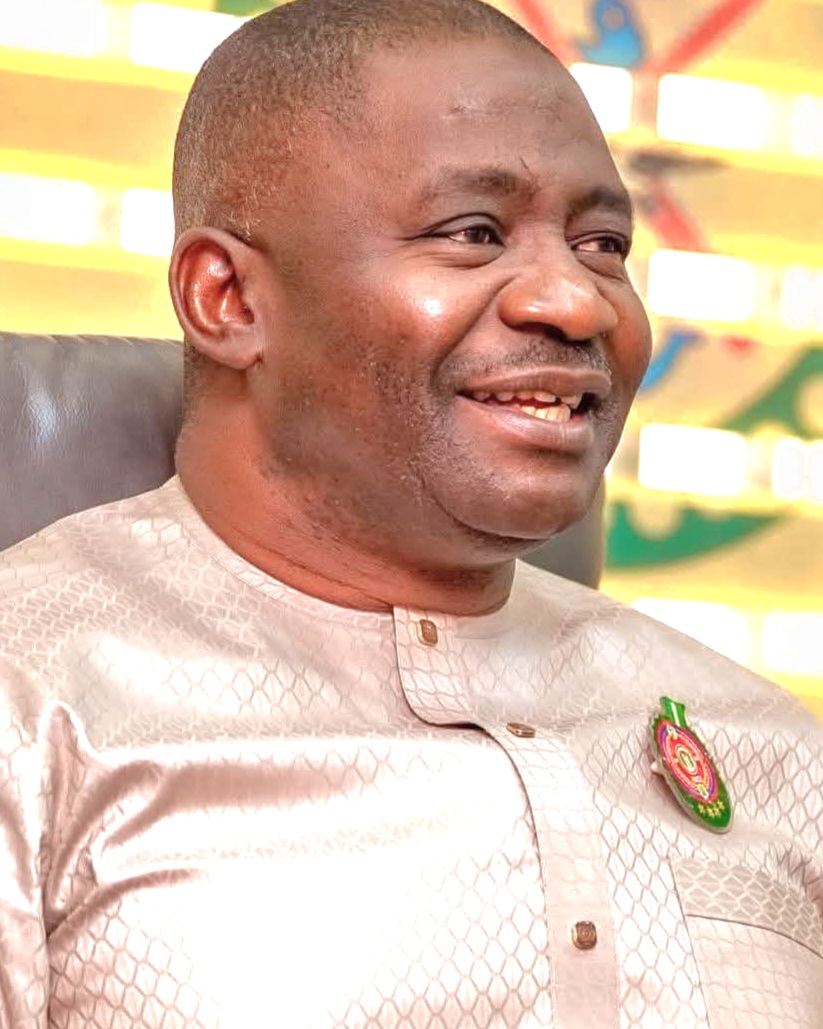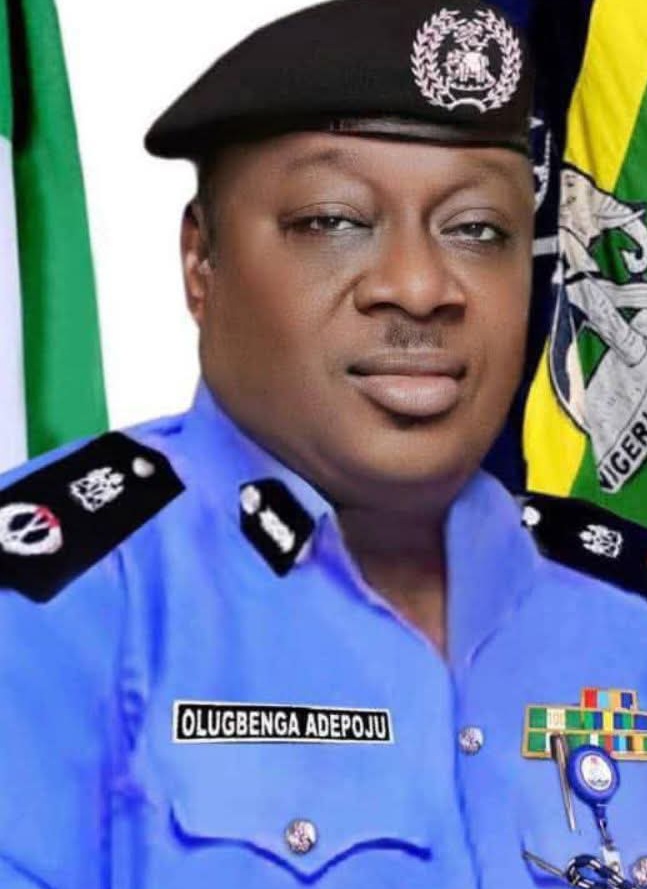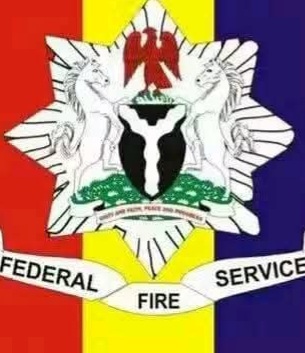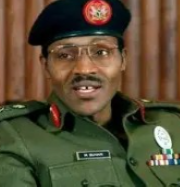
By Isiaka Mustapha, CEO/Editor-in-Chief, People’s Security Monitor
In the complex and often turbulent evolution of Nigeria’s nationhood, few individuals have left as lasting or multifaceted a mark on national security and military development as the late General Muhammadu Buhari. Known for his strict discipline, unwavering patriotism, and resolute leadership, Buhari’s influence spanned both military and civilian realms, establishing him as one of the most pivotal figures in Nigeria’s modern security architecture. His contributions continue to underpin key aspects of the country’s defense and security strategies.
Born on December 17, 1942, in Daura, Katsina State, Buhari began his military journey in 1962 at the Nigerian Military Training College (NMTC) in Kaduna. He would go on to receive further training at the Mons Officer Cadet School in the UK, as well as military institutions in India and the United States, including the US Army War College. These global exposures refined his strategic thinking and command abilities, preparing him for leadership during some of Nigeria’s most volatile periods—the 1966 coups, the Nigerian Civil War, and the post-war nation-building efforts.
During the civil war (1967–1970), Buhari served as a battalion commander with the 1st Division of the Nigerian Army. He led combat operations in critical zones such as Nsukka and Gakem, earning recognition for his tactical acumen. These experiences shaped his understanding of asymmetric warfare, counter-insurgency, and civil-military coordination insights that would define his future leadership both in uniform and in office.
His military ascent was steady and strategic. As Federal Commissioner for Petroleum and Natural Resources (1976–1978) under General Olusegun Obasanjo’s regime, Buhari helped establish the Nigerian National Petroleum Corporation (NNPC) in 1977. He championed accountability, transparency, and domestic refining capacity, spearheading the construction of the Kaduna Refinery. His work here linked economic management with national security, a philosophy he carried into subsequent leadership roles.
On December 31, 1983, Buhari led a coup that ended Nigeria’s Second Republic and assumed power as Head of State (1983–1985). His administration was defined by strict discipline, a strong anti-corruption stance, and a focus on national security. He launched the War Against Indiscipline (WAI) in 1984—a campaign aimed at instilling civic responsibility and public order. Although criticized for its authoritarian overtones, WAI remains one of Nigeria’s most impactful behavioral reform initiatives, influencing public ethics and governance standards.
Buhari’s military government viewed corruption as a direct threat to national stability. His regime prosecuted over 500 public officials for graft and economic crimes, an unprecedented crackdown, even though some trials lacked due process. He also prioritized securing Nigeria’s borders and combatting smuggling by closing land entry points. These efforts, backed by military task forces, curbed the flow of illegal arms and disrupted criminal networks, particularly in the northern regions. His administration further modernized the military by procuring armored vehicles, tanks, and helicopters—assets that strengthened Nigeria’s defense capabilities into the next decade.
After three decades, Buhari returned to power democratically in 2015, defeating incumbent President Goodluck Jonathan. At the time, Nigeria was reeling from the Boko Haram insurgency, with large swathes of the northeast under militant control. One of Buhari’s first moves was relocating the Military Command and Control Centre to Maiduguri, the epicenter of the conflict, a decision that revitalized operational leadership on the ground. By late 2016, the military had reclaimed all occupied territories, including the notorious Sambisa Forest. Defense Headquarters reported that over 20,000 insurgents were neutralized between 2015 and 2020, while more than 3,000 civilians were rescued.
His administration significantly boosted military funding. Nigeria acquired Super Tucano jets, attack helicopters, MRAPs (Mine-Resistant Ambush Protected vehicles), and surveillance drones. The Air Force expanded its fleet by over 20 aircraft between 2016 and 2022, with training partnerships formed with the US, Brazil, and Pakistan. Over 60,000 personnel were recruited across the armed services to fill capacity gaps. A key innovation was the introduction of the “Super Camp Strategy,” which consolidated vulnerable outposts into fortified hubs. Though this approach faced criticism for reducing presence in remote areas, it cut troop casualties by over 40% between 2019 and 2021.
Buhari also tackled rural insecurity and herder-farmer conflicts by launching the National Livestock Transformation Plan and establishing the Agro-Rangers, a special NSCDC unit tasked with protecting farmlands and agricultural assets. Food security, in Buhari’s view, was a core component of national security. In the cyber domain, he signed the Cybercrimes Act into law in 2015, expanded the Office of the National Security Adviser’s responsibilities, and initiated SIM card registration to disrupt kidnappers’ ability to operate anonymously. By 2022, the Nigerian Army had launched its own cyber command, following global models like those of NATO and the US.
Regionally, Buhari reinvigorated Nigeria’s role in multilateral security through the Multinational Joint Task Force (MNJTF), working with Niger, Chad, Cameroon, and Benin to combat Boko Haram and ISWAP. His government secured over $200 million in international support and helped push terrorism onto the African Union’s formal peace and security agenda. His lobbying also led to the US approval for the sale of A-29 Super Tucano aircraft, despite legal hurdles under the Leahy Law.
Despite criticism over his handling of rising banditry and ethnic tensions, Buhari’s legacy in security reform is undeniable. He emphasized a holistic approach one that combined military might with food security, economic stability, institutional reform, and civic discipline. His tenure brought renewed professionalism to the armed forces and modernized Nigeria’s defense posture.
In death, as in life, Muhammadu Buhari remains a polarizing yet towering figure. He was not just shaped by Nigeria’s military he helped shape it. His vision for national security, built on the pillars of order, sovereignty, and institutional strength, continues to inform national discourse. For a country still battling multiple layers of insecurity, Buhari’s legacy stands as both a cautionary tale and a guide etched in uniform, sacrifice, and a steadfast belief that only a secure Nigeria can be a truly great one.

